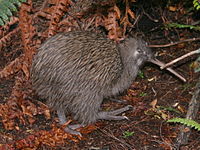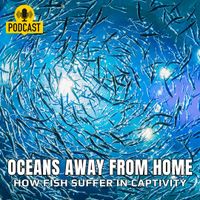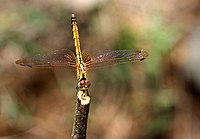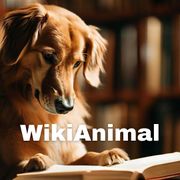Main Page: Difference between revisions
mNo edit summary |
mNo edit summary |
||
| Line 19: | Line 19: | ||
<option>{{Template:Featured article/Koala}}</option> | <option>{{Template:Featured article/Koala}}</option> | ||
</choose> | </choose> | ||
</div> | </div> | ||
| Line 31: | Line 30: | ||
<option>{{Template:WFC/Wildlands Network}}</option> | <option>{{Template:WFC/Wildlands Network}}</option> | ||
</choose> | </choose> | ||
</div> | </div> | ||
| Line 40: | Line 38: | ||
</choose> | </choose> | ||
</div> | </div> | ||
</div> | </div> | ||
Revision as of 21:25, 7 January 2024
Featured article

Tokoeka are the largest of the kiwi, with males weighing up to 3.3 kg and females up to 4.2 kg. They have soft, brown feathers streaked with black and reddish brown, long pale bills, short legs and toes, and no tail. They are nocturnal, except on Stewart Island where they sometimes forage during the day. They have a keen sense of smell and use their bills to probe the ground for invertebrates, such as worms, beetles, cicadas and moths. They also eat some fallen fruit and leaves.
Tokoeka have distinctive calls that they use to communicate with their mates and to mark their territories. The male gives a high-pitched ascending whistle repeated 15-25 times, while the female gives a lower-pitched hoarse cry repeated 10-20 times.
Featured interview

Devan Schowe, a campaign's associate for Born Free USA delves into the "Oceans Away from Home" report, which highlights the suffering of fish in captivity. Fish often face challenges that parallel those of larger, more commonly studied captive animals. Additionally, the rising surge of octopus farming in Spain, raises ethical concerns due to the remarkable intelligence of these creatures.
Join us in this conversation, challenging our perspectives on animal treatment and advocating for a more compassionate approach to their well-being.
Featured video
Deadly ocean trash - The impact of ghost nets
Every year, about a million tons of fishing nets are lost or dumped in the sea, known as "ghost nets," causing indiscriminate deaths of marine animals. Synthetic nets, which take up to 600 years to decompose, are a significant part of this problem. Initiatives worldwide attempt to salvage and recycle ghost nets, but the process is expensive and dangerous.
In the news
Did you know?

- At only 1 cm (⅜ in) the Antarctic midge insect is the largest land animal native to Antarctica.
- Dragonflies have existed on earth for 300,000,000 years.
- A box jellyfish has 24 eyes.
- Giant squids can be up to 18 m (59 ft) long.
- The mimic octopus can change its colour and texture to look like rocks, coral, and even other animals.
About WikiAnimal

WikiAnimal is an online knowledge base dedicated to the animal kingdom. Its mission is to offer a comprehensive and accessible resource for animal enthusiasts. Here you can find information about all kinds of animals, from mammals to reptiles, from birds to fish, from insects to amphibians. You can learn about their habitats, behaviors, diets, adaptations, conservation status and more.
You can also contribute to WikiAnimal by editing existing articles or creating new ones. Wikianimal is a collaborative project that relies on people like you to share their knowledge and passion for animals.
Join the growing WikiAnimal community in promoting knowledge, understanding, and compassion for animals.
WikiAnimal - founded Apr 10, 2023.WikiAnimal Projects
- Project Animal Talk - feature interviews and blogs from people who are passionate about animals.
- Project Newshound - Newshound is a Really Simple Syndication (RSS) retrieval platform that aggregates animal related content from various sources using RSS feeds. You can then access Newshound in a centralized location to view and stay updated on news and articles from different websites. Newshound algorithms attempt to ensure that you receive timely updates while trying to avoid overwhelming you with irrelevant information.
- Project Species - an ambitious initiative dedicated to documenting the vast diversity of life on Earth. Our mission is to create an exhaustive and comprehensive repository of knowledge about every (as many!) species of animal that inhabits our planet.
